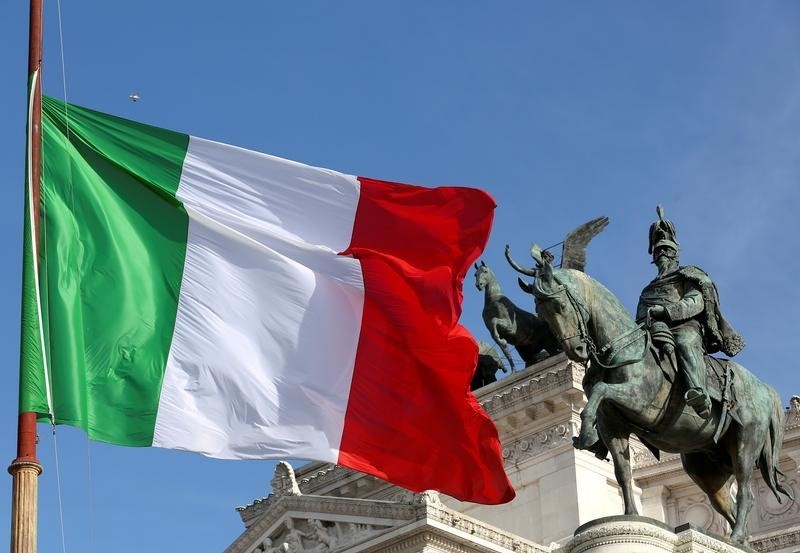By Valentina Za
MILAN (Reuters) - Bargain-hunters are venturing back into Italy's market for "green" tax credits, lured by heavily discounted assets and better legal protection against the consequences of possible fraud.
Italy's government last month scrapped a generous tax credit scheme aimed at making homes more energy-efficient, dealing a blow to the construction industry and leaving billions of euros in frozen tax credits.
Finding a buyer for these credits is key for the construction sector, which is grappling with an estimated 19 billion euros ($20 billion) of credits for work that has already been completed or committed to, but that have not been paid out.
The green initiative, launched in 2020, led to a surge in home renovations and helped Italy's economy recover from the coronavirus pandemic. But it also pushed up government borrowing and was blighted by fraud.
Incentives offered to homeowners between late 2020 and the start of this month generated 110.8 billion euros of tax credits, according to Italy's tax agency, which has uncovered irregularities affecting credits worth some 9 billion euros.
Of these, 3.6 billion euros have been seized by prosecutors as they probed fraud allegations, causing the market to freeze.
"Following court sentences ... investors put on hold several deals we'd been working on," said Michele Aprile, a partner at Milanese law firm Gatti Pavesi Bianchi Ludovici.
Italy's ban on the sale of new tax credits put a stop to a system that had allowed beneficiaries to use them as a form of payment.
Contractors doing the work would buy the credits, offering a corresponding invoice discount, and then sell them on to companies, mostly banks, that would deduct the sum from their own tax bill with the state.
Italian banks have reached self-imposed ceilings and are no longer mopping up these credits, leaving the government scrambling to find other buyers.
BETTER LEGAL PROTECTION
In an effort to restart transactions of existing credits, when it put a stop to the scheme, Rome has strengthened legal protections for buyers.
Under new rules, buyers cannot be held responsible if the credits turn out to be fraudulent, as long as they can prove they acted diligently in buying them and acquired all the necessary documents.
"These changes - and the stop to new credits - have reopened the market in earnest," said Michele Favella of Finanza.tech, a fintech conducting due diligence analysis on the tax credits.
"We were able to quickly sign two contracts after the new provisions passed and we have more in the pipeline," he said.
Finanza.tech, which carries out anti-money laundering or reputational checks on sellers, last week struck a deal with two Italian companies that will see them buy tax credits worth 425 million euros over the 2023-2026 period.
Many of the potential buyers are companies in the oil sector, often those managing coastal storage sites which can use the credits to offset excise duties amounting easily to 200-250 million euros a year even for relative small businesses, Favella said.
While only companies paying taxes in Italy are able to use the credits to offset their tax bills, Aprile said a fall in price to around 75% of the credits' nominal value have made them an appealing asset for international investors.
In this case the buyer would be a fund that normally buys high-yield bonds and could invest through a securitisation deal, he said.
"The current discount of 20-25% at which these assets trade ... is bound to draw funds' attention because of the kind of returns they can generate. We were flooded by phone calls from investors following the latest law changes," Aprile said.
"But we need to be honest with our clients. We tell them: the law is in your favour and it's clearer than before, but we can't rule out someone taking a different view and ... and then you're exposed to the slowness of the Italian judicial system."
($1 = 0.9316 euros)
